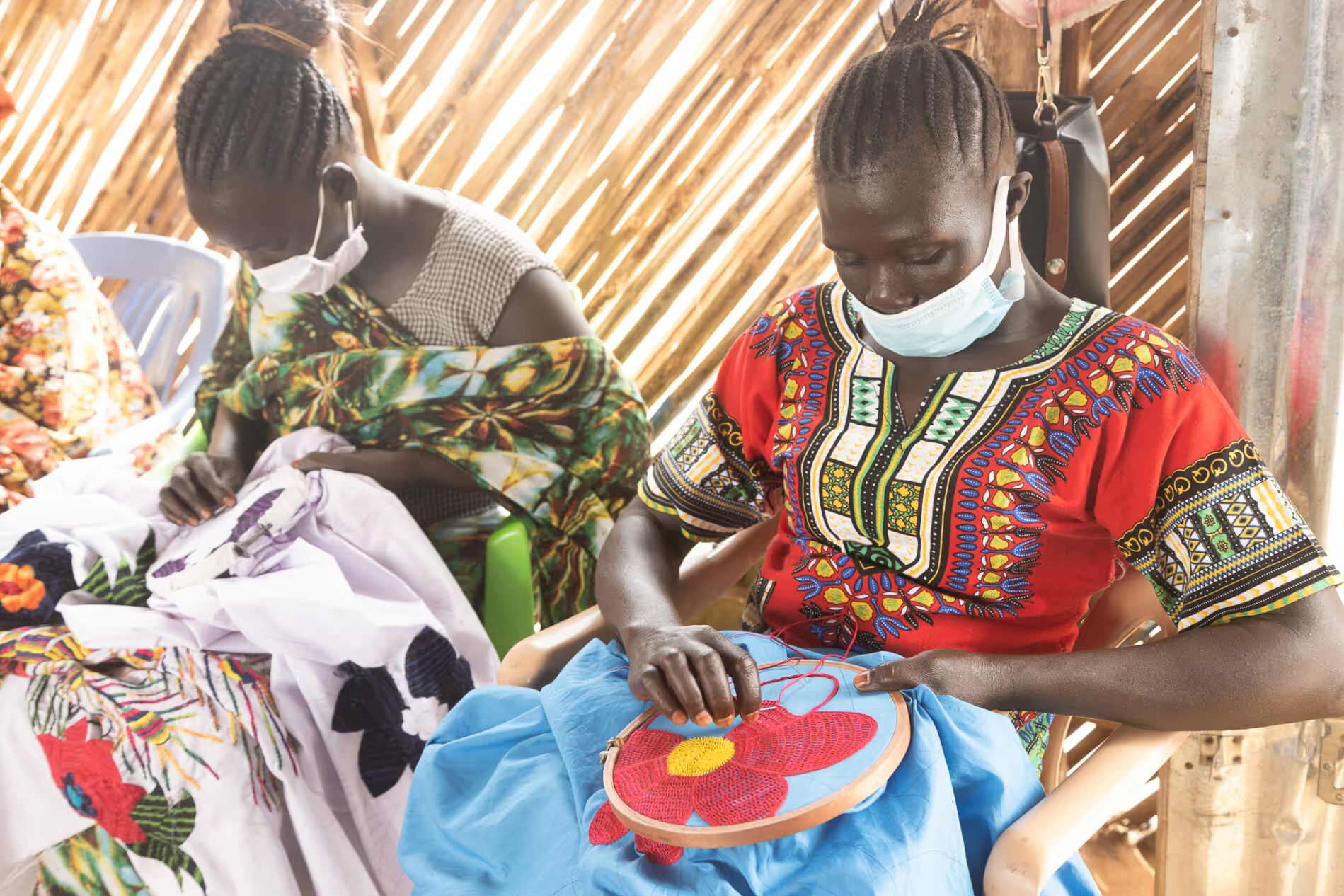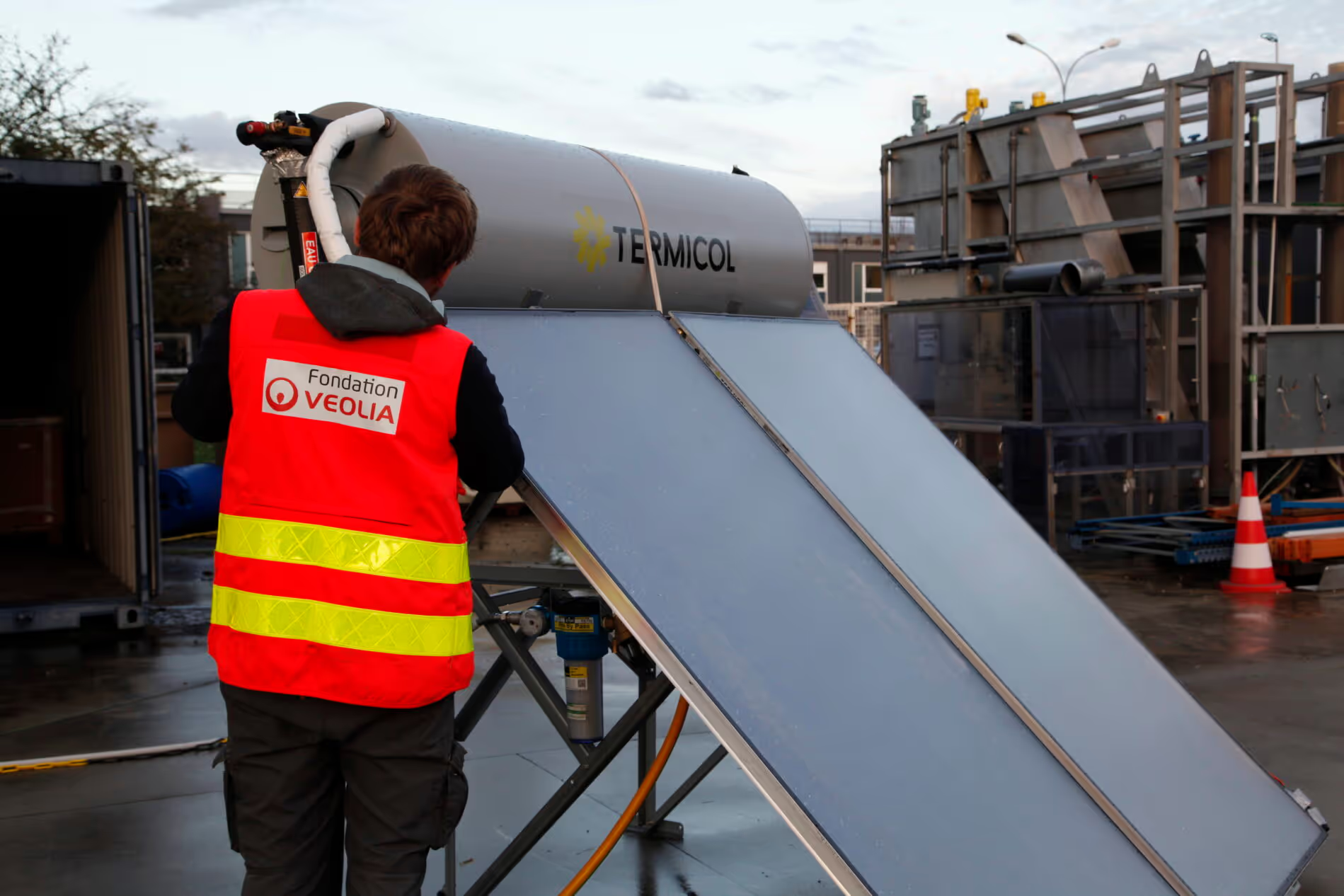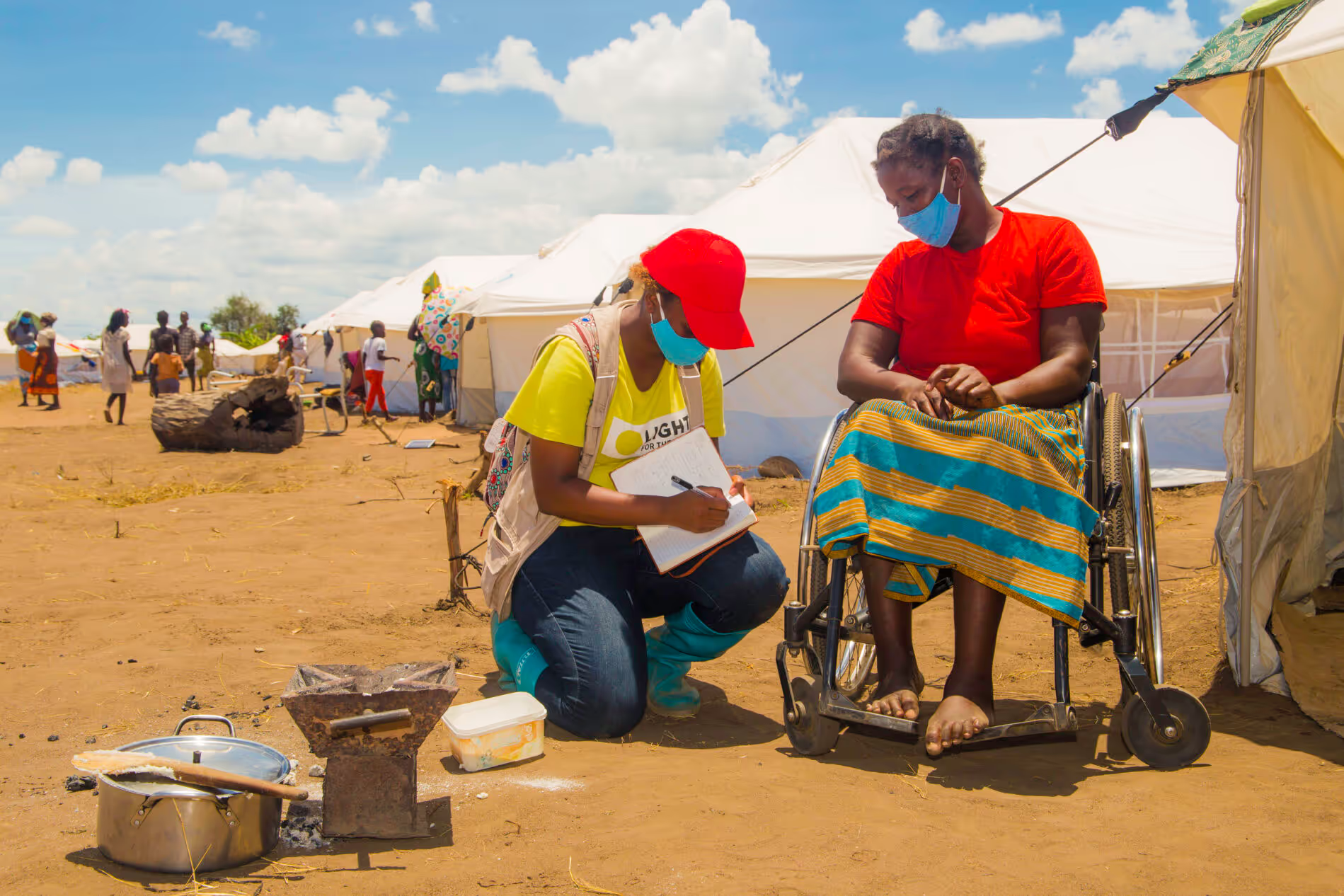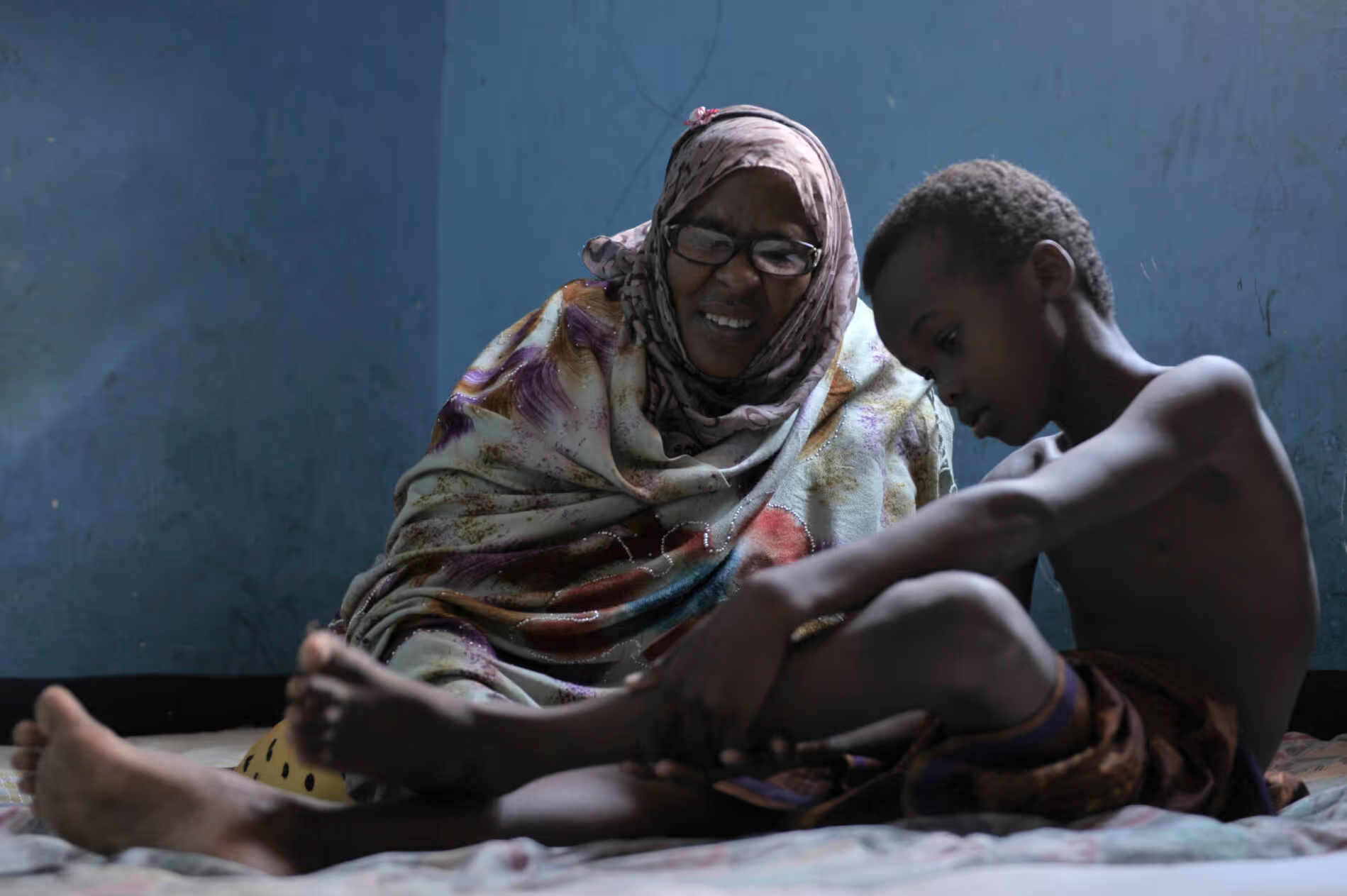Safer Management and Reliable Treatment (SMaRT) of faecal sludge in emergencies.
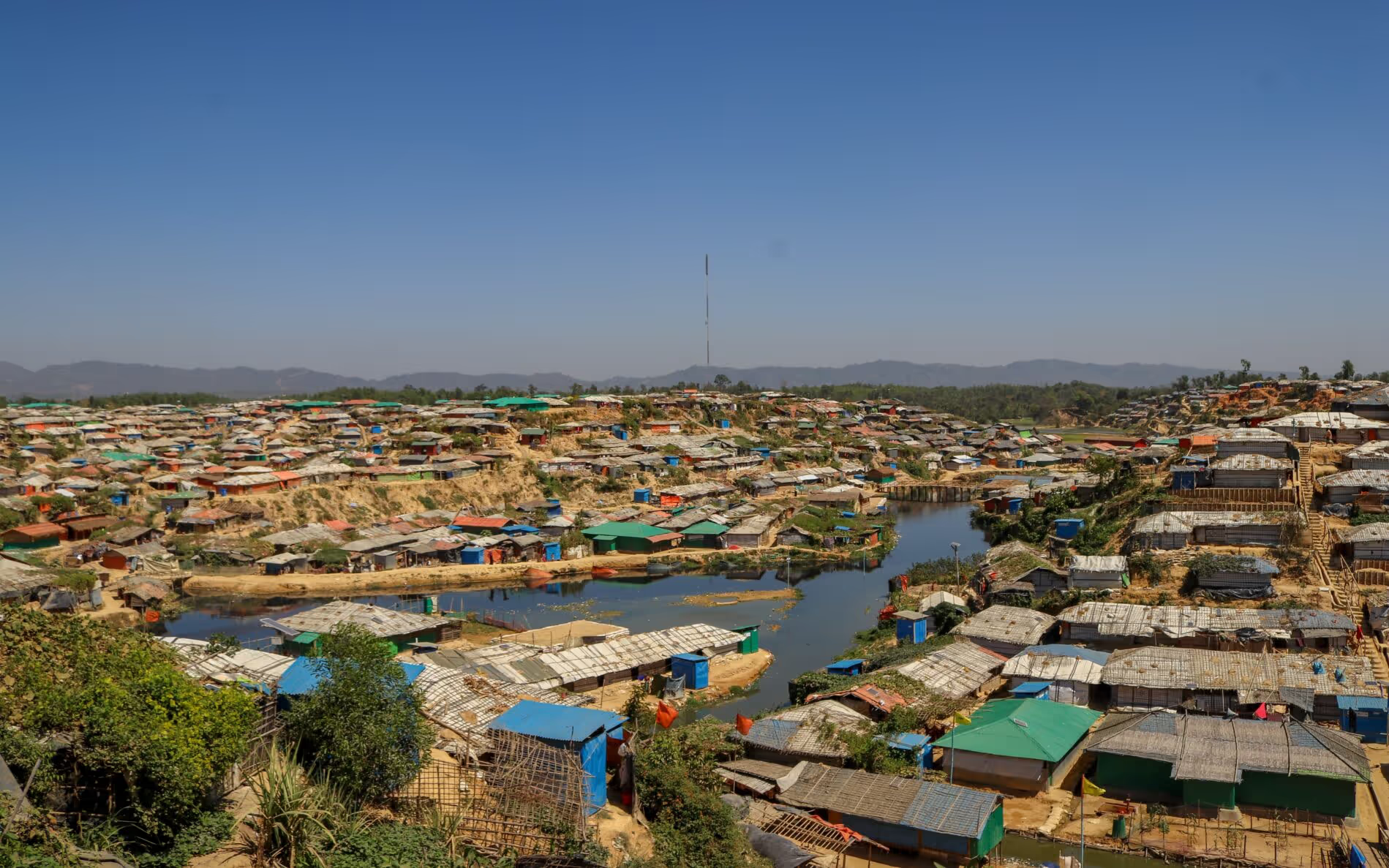
Project overview
Project SMaRT is developing practical adaptations and interventions to better respond to the handling and disposal of faecal sludge.
Project solution
This project offers [specific solution or intervention] to tackle [challenge]. By implementing [strategies, tools, or innovations], the project aims to achieve [desired outcomes]. The approach is designed to [specific actions or methods] to bring about meaningful change in [community, region, or issue area].
Expected outcomes
This project aims to achieve [specific outcomes], such as [measurable results, improvements, or changes]. The expected impact includes [benefits to the target community, advancements in research or innovation, or long-term effects]. By the end of the project, we anticipate [specific changes or milestones] that will contribute to [broader goals or objectives].
WHAT HUMANITARIAN NEED IS BEING ADDRESSED?
Humanitarian crises following natural disasters or armed conflicts can lead to the sudden and rapid displacement of human populations. Safely managing human excreta during these times is vital if waterborne disease outbreaks such as cholera or typhoid are to be avoided or contained. But, despite progress, the UN estimates that one billion people across 43 countries are at risk of cholera. And the World Health Organization has warned that increasing resistance to antibiotics to treat typhoid is helping the pathogen spread to communities that lack access to adequate WASH facilities. So, it’s vital that human excreta from domestic and healthcare sources is safely contained and treated promptly during the onset of humanitarian emergencies, especially in densely populated contexts (such as those found in refugee camps). However, conventional biological treatments typically take many weeks to establish and so they need to be backed up by quicker, more scalable chemical-based processes (such as those involving lime).
WHAT IS THE INNOVATIVE SOLUTION BEING ADOPTED AND HOW WILL IT IMPROVE EXISTING HUMANITARIAN PRACTICE?
Project SMaRT is addressing the inconsistencies and shortcomings associated with lime treatment (a chemical-based approach). The team is targeting issues around the quality and purity of lime supplies, and issues around optimal lime dosing, pathogen removal and the suitability of lime for application in healthcare settings (including for the safe containment and treatment of infectious waste). The innovation will offer humanitarian actors an off-the-shelf backstop to deploy during the onset of a crisis, particularly useful while longer-term biological sewage treatment is established.
WHAT PROGRESS HAS BEEN MADE?
At the heart of the project are two faecal sludge treatment plants (FSTP’s) and laboratories run by MSF and BRAC, receiving waste from across the world’s largest refugee camp at Cox’s Bazar. Staff are helping to develop simple, novel field-based kits to test the quality of lime, and to produce diagrammatic dosing protocols based on the amount of lime content needed to achieve satisfactory reductions in microbe concentrations. They’re also using lab-based approaches to assess pathogen removal. The outcomes are helping MSF, BRAC and non-governmental organisations more effectively control, optimise and tailor lime-based treatment to specific sites and applications, to strengthen health outcomes.
INNOVATION POTENTIAL
The team’s approach is ideal for densely populated emergency settings and could be scaled up to provide standardised kits containing everything needed to treat a given volume of excreta. Applications also extend to augmenting biological treatment during waterborne disease outbreaks and to handling waste from healthcare settings.
Controlled lime treatment trials are currently underway at the MSF-run FSTP using faecal sludge of known age, composition and origin from communal septic tanks, piped wastewaters and from healthcare facilities within the camp. The findings will help identify optimal treatment conditions and support the production of simplified user manuals and the wider deployment of the method to aid international emergency response.
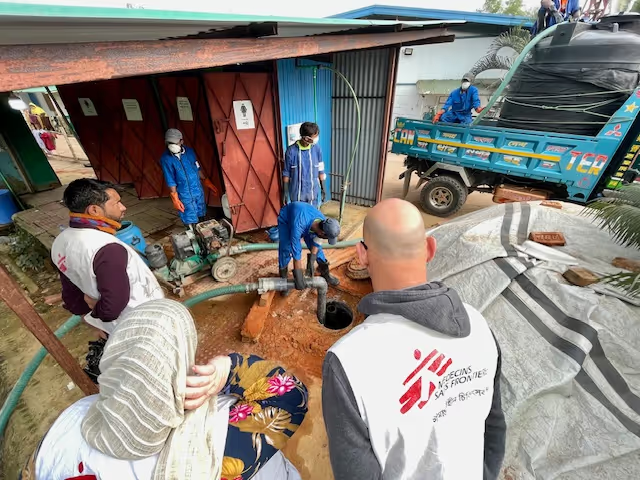
[.slimline-cta-box][.slimline-cta_heading]Links to more information[.slimline-cta_heading][.slimline-cta_paragraph]From Clinics to Sludge: The many facets of MSF
Bluephage interview James Ebdon
Radio 4 Interview with Melvyn Bragg (‘In Our Time’)
[.slimline-cta_paragraph][.slimline-cta-box]
Project delivery & updates
Stay up to date with the latest developments from this project. Here, you will find details on what has been delivered, resources created, and regular updates as the project progresses. Access key documents, reports, and other materials to see how the project is making an impact.



